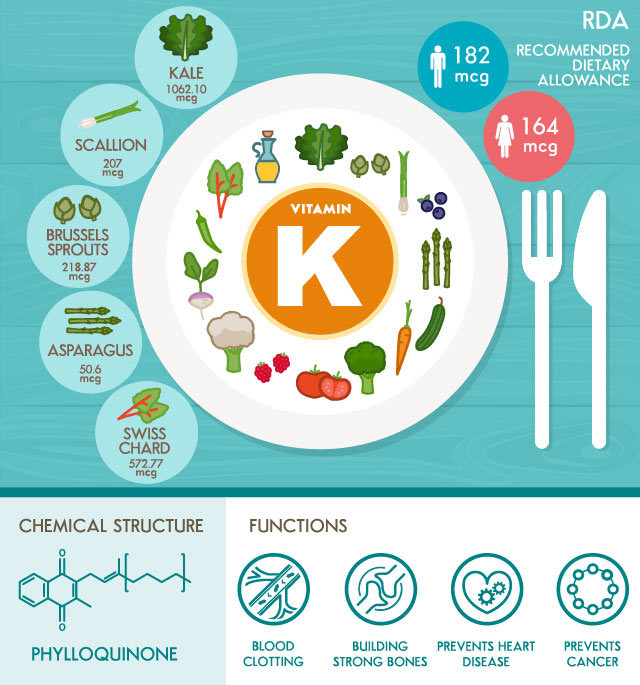What is Vitamin K?

Vitamin K is a fat-soluble vitamin that can be found in five different forms. The "K" comes from the German word koagulations, which means coagulant in English. It is aptly named since vitamin K is necessary for blood to clot, a physiological process essential to human health.(1)
Why is Vitamin K Important?
Coagulation is a complex, multi-step mechanism in the blood called hemostasis. In order to survive an injury to blood vessels, the body must:(1, 2)
- Thicken the blood to form a clot.
- Stop the blood flow from an injury.
- Dissolve the clot once the injury is healed to resume blood flow.
Vitamin K is a crucial ingredient for the body to make the proteins in the liver needed for hemostasis. It is not stored in large quantities in the body, but there are many good sources of vitamin K in the food we eat.(1, 2)
Sources and Types of Vitamin K
Even though there are five different forms of vitamin K, only two of the five (K1 and K2) occur without further synthesis in nature. Vitamin K1 is considered the main dietary form. Parsley, kale, spinach, and broccoli are particularly good food sources for vitamin K1.(3, 4)
| Form | Source | Commonly Used For and/or Known Benefits |
|---|---|---|
| K1 |
To treat:(1)
Vitamin K1 is also used to prevent hemorrhagic disease in babies and osteoporosis.(1) |
|
| K2 |
Used to treat:(1)
|
|
| K3 | Synthetic form of vitamin K.(4) |
|
| K4 | Water-soluble salt of vitamin K3.(1) |
|
| K5 | Synthetic form of vitamin K.(8) |
Optimize Your Intake of Vitamin K
Want to maximize how much vitamin K you get from your diet? Try adding butter (or other fats, such as oil) to your dark green or yellow veggies. Experts say it increases absorption of vitamin K.(1)
